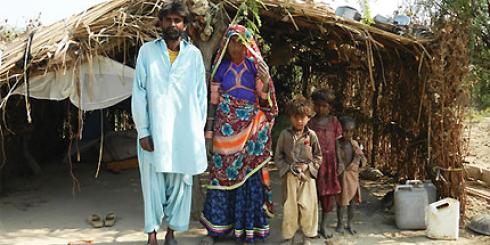The economic system is not working for all people or for the environment. It is increasingly concentrating wealth and power in the hands of a very few. According to a recent Oxfam report, 1% have 50% of the world’s wealth while the poorest 50% of the world’s population (3.5 billion people) have the same amount as just 85 individuals. It is the root of structural injustice and of environmental destruction. This is a scandalous situation which must change for the sake of the poor and marginalised.
"The socioeconomic system is unjust at its roots."
Pope Francis, Evangelii Gaudium (#59)
Pope Francis criticises economic growth and the free market which he says has led to "a globalisation of indifference" (#54). His exhortation, 'Evangelii Gaudium' (The Joy of the Gospel) is a clear vision for life founded on a personal encounter with Jesus Christ. He exhorts all communities to an "ever watchful scrutiny of the signs of the times. This is in fact a grave responsibility, since certain present realities, unless effectively dealt with, are capable of setting off processes of dehumanisation which would then be hard to reverse" (#51).
Columban Missionaries are motivated by their Gospel commitment to respect all life (human and non-human), to choose to be in solidarity with the poor and to promote authentic development which respects human dignity and the limits to material growth. In the countries where we work, Columbans have dedicated their lives to live with the people who endure poverty, and work with them to improve their situations. In the 1980s when debt crisis occurred in the poor countries of Latin America, Asia and Africa, Columbans were involved in research about the causes and produced resources to help raise awareness about the structural injustice and the immediate impacts of the resultant poverty on the lives of people. This mission work continues today.
Columban Missionaries reject the models of development promoted by many multinational corporations, governments and international financial institutions that is based on the intensive exploitation of natural resources, most of which are non-renewable. It is a new form of colonisation called the "resource curse" which creates conflict, dependency and an increased gap between rich and poor.
Campaigns
 Easter Eggs Fairly Traded?
Easter Eggs Fairly Traded?
People who want to eat ethically produced chocolate are realising they can do something. Fair Trade chocolate sales are on the rise in Australia. Cadbury have even joined the smaller companies. Read more
 Chocolate, Slavery and Debt
Chocolate, Slavery and Debt
While you are dreaming of chocolate, do you ever wonder where the chocolate comes from? One connection is between the production and marketing of chocolate, slave labour and the debt burden of poor countries. Learn more
 Columbans in partnership with Jubilee Australia
Columbans in partnership with Jubilee Australia
Columbans were involved in the Jubilee 2000 global campaign to cancel the debt of heavily indebted poor countries. This campaign was advocated by Pope John Paul II and supported by many church and religious agencies. Learn more
Read articles on Economic Justice
- Explore the Columban eConnections newsletter archive featuring articles based on themes of Peace, Ecology and Justice
- Not on My Watch
- Sovereign Debt: A New Home for an Old Idea
- Charity Ends at Home
Related Links
ACRATH - Easter Campaign - Slavery free Easter
Jubliee Australia promotes the accountability for the causes of poverty and injustice in the Asia Pacific, elevating the voices of affected communities.
Tax Justice Network Australia is a growing network of individuals and organisations calling for fairer tax systems. Tax Justice Network Australia is the Australian arm of the international Tax Justice Network.
Australian Fair Trade & Investment Network (AFTINET) is a national network of community organisations and individuals which campaigns for fair trade based on human rights, labour rights and environmental sustainability.

